#the international booker prize
Text
What I'd Rather Not Think About by Jente Posthuma - review
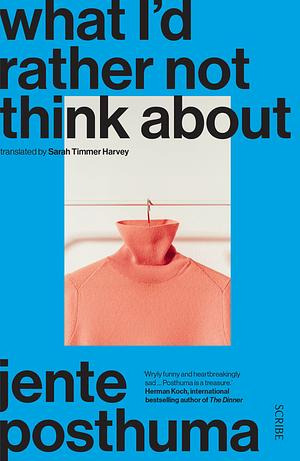
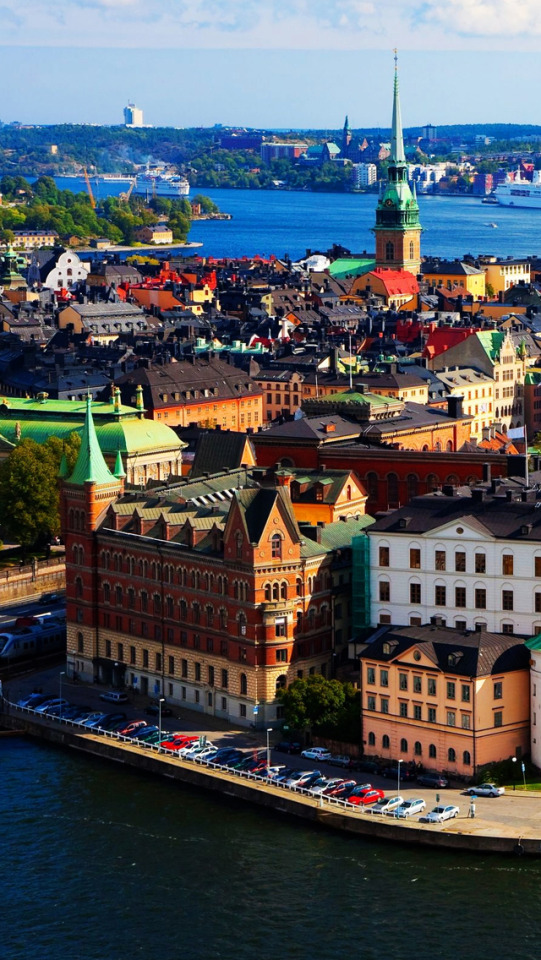
rating: ⭐⭐⭐⭐ (4.25)
What I’d rather not think about follows the story of an unnamed female narrator whose twin brother has committed suicide. It spans over their childhood until two years after the death of the brother. It sets to deal with themes such as self discovery and complex relationships, both as siblings but also as individuals.
I’ll start with the critics:
The dynamics between the twins are odd at best, but I’ve also never had a twin, I only have a sibling and maybe they’re a kind of a different bond. Still I wished the novel had more bantering between siblings, to show an accurate depiction of family bonds. We do get the sense they love each other, but the brother is unlikable, which usually doesn’t bother me, and it didn’t bother me here, but I wish I had something more.
However, The novel deals with codependency and detachment in a very balanced way which I enjoyed.
The book includes facts about a lot of horrible historic people that harmed innocents. I found those references irrelevant and didn’t add much to the overall plot, nor for the development of characters. They served one purpose: to show that our narrator lived in the early 2000 and could google things, still I think it could’ve been shown without tragic holocaust facts.
Your gift isn’t a gift, it’s a defect, said my brother. You can’t keep your distance.
Eventually people grow out of their childhood and need to learn how to land on both of their feet alone, but what happens when you’ve never spent a second alone? Not even in the uterus? That’s why this book exists.
Our main character is very dependent on her older brother, and it becomes toxic and self-destructive very fast. This behavior causes the twins to have fights and disagreements and adding to the depression both of them have, they grow apart.
The novel explores self identity, forgiveness and personal boundaries within sibling relationships, however it never forgets to address the love that exists in that special bond.
Both of the siblings travel solo, have love relationships and different goals in life, we as readers follow their growth into their own selves, for better or for worse.
I can never get it right with you, said my brother. Why are you always so pushy? I’m trying to reach out to you, I said. Hello! Hello, said my brother. Here I am. He closed his eyes to concentrate on tasting the meat.
As the mental health of the brother deteriorates we see the author address a complex and sour topic: how do you help someone with depression. It’s the best part of the book and why it earned its rating for me.
Seeing someone you love succumb to depression is not easy, and you don’t always have to patience to deal with it. It most definitely not always end with a happy ending, in the end the brother still killed himself. I loved how the sister tried to reach out to him and he wouldn’t let her, because sometimes that’s what happens, people feel alone and they don’t want to be helped. This book does an excellent job at showing that without blaming the person who commits suicide. It also shows the flaws os someone trying to reach out, the sister could’ve done more, she could’ve paid more attention, and yet she didn’t but no one can say it’s her fault her brother is dead.
The author deals with this topic with such delicacy but at the same time such ease it really pulls you inside the story.
I’m trying to understand him. When someone says they love you but still ends up leaving, I can’t understand it. I don’t believe in that kind of love
This leaves us with the aftermath of mourning the death of a person who took their own life. It truly amazed me to see how the narrator went through different stages of grief in such curt pages. The anger and sadness both contrast each other in this part of the novel and yet none wins.
She’s still alive, he’s still alive, I thought every time someone walked by. She didn’t throw herself in front of a train. Everyone who’s still alive clearly thinks life is worth living. Clearly, I think life is worth living.
In the end of the novel the narrator still feels sad, as grief never truly goes away, but she also reaches peace with what happened. I really enjoyed reading both their journey into adulthood and dealing with the anguish and the happiness of life.
Many people might think this book doesn’t go deep enough into the grief, but I found it the perfect book at the right time for me. The small references of mundane things added to the story in my opinion, they felt vital to bring the characters to life and shaping them into real people.
I’ll end my review with my favourite quote:
I thought about all the love we have inside us and how only a shred of that reaches the people we care about
#booklr#literature#book quotes#book review#books & libraries#books#reading#my reviews#book reccs#book recommendations#dutch literature#translated literature#the international booker prize
2 notes
·
View notes
Text
Farewell, now you will no longer be you, nor I, I. As if to say, This ebbing night will rise now in such a day that will be new.
Geetanjali Shree in, Tomb of Sand.
#quotes#books#prose#book quotes#books and libraries#bookblr#booksbooksbooks#lit#book rec#literature#indian literature#geetanjali shree#tomb of sand#international booker prize#:)
11 notes
·
View notes
Text
Tobias Menzies reads from 'Mater 2-10' | The Booker Prize
youtube
4 notes
·
View notes
Text
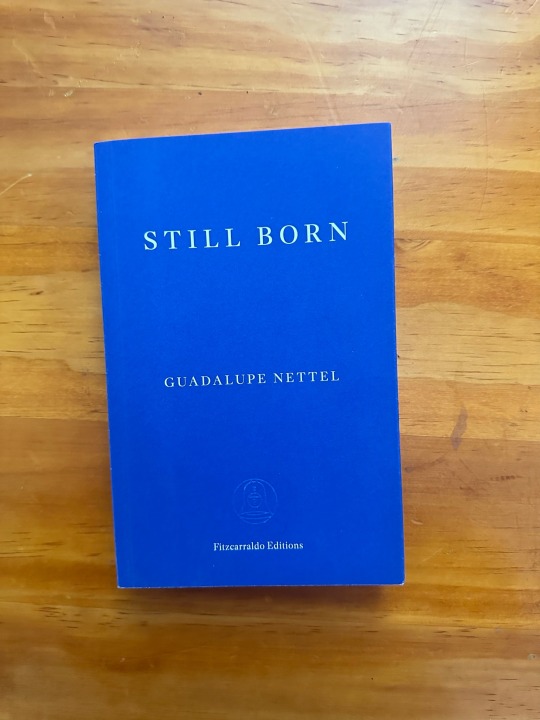
Book 12 of 2023: Still Born by Guadalupe Nettel (translated by Rosalind Harvey) turns out I just love reading books about the ambivalence of motherhood and this covered such an amazing range of emotions. I think this makes a perfect companion to the Involuntary Trilogy by Ariana Harwicz
#translated lit#translated literature#women in translation#translatedliterature#translatedlit#read in 2023#ibp2023#international booker prize
4 notes
·
View notes
Text
analysis
Bora Chung’s short story, The Head, from Cursed Bunny
- translated by Anton Hur
synopsis : a head constructed out of a woman’s feces rises out of her toilet bowl and begins to call her mother. disturbed and disgusted, a series of events lead the woman to quit her job and enter a loveless marriage and give birth to a daughter. however, she is constantly plagued by the head and so attempts to get rid of it. on after the second failed attempt to kill it, the head eventually stops appearing. the woman grows old, cooking and cleaning for her husband and daughter. as her daughter grows, the woman begins to recognise her ageing body. then one night out of the blue, the head rises out of the toilet as the woman’s younger self and demands the woman to give her her clothes. the head (now her younger self) enacts revenge on the woman for her mistreatment and tips her into the toilet.
-------
when I first read The Head I was struck by how surreal it was. it was nothing like I've ever read before- it was bonkers- yet bonkers isn’t quite the word for it. As crazy as a head made of feces calling you “Mother.” got, the woman’s suppressed dissatisfaction with her life, her relationship with her daughter and husband, her disquietude and disgust of the head all seemed rather rational.
as I was reading through the short story, I was desperately trying to work out what exactly were ‘the bigger meaning’ behind the story. at first it seemed to me to not have a large cohesive ‘bigger meaning’ but rather smaller fragments of it, perhaps its aim was to give a fragmented representation of society- for instance, a pressure to marry, growing old and living with regrets.
arguably, The Head could be interpreted as a showcase of class divide; the head representing the marginalised members of society, and the woman representing the upper class, ending with a social upheaval as the woman is flushed down the toilet, serving as a kind of warning of the transience of power and social capital. in many ways The Head reminded me of Mary Shelley’s Frankenstein, which could also be interpreted as a novel in support of the French Revolution, repeatedly showcasing the idea of ‘if you treat people well, they will behave well, if you treat them badly, they will undoubtedly rebel’. This idea could also be seen in The Head, when the woman demands gratitude from the head at the end of the story, the head responds with ‘Gratitude. What gratitude should I have for you? [...] What have you given me besides your feces and trash?’. the woman's mistreatment and rejection of her responsibility towards the head accumulated the head’s resentment and lead to her demise.
however, I am more so convinced by the reading that The Head was an exploration of the oppression of women and its effects. I am not sure if I am reaching but in some ways I felt that the head was likened to an aborted fetus. It is an unwanted child and the woman did not purposely create it or want it either and if you will, it’s down the toilet. Either way, never mind wether the head is a symbol for an aborted fetus, it is ultimately an unwanted child, a child born out of wedlock which is already a cause of social exclusion be it aborted or not. The head’s identity as a child born out of wedlock- or even as child born out of feces- embodies the unconventional, shunned route leading away from the rigid obligations of marriage, childbirth and motherhood. the woman’s disgust of the head could be reflective of society’s disgust of the unconventional, leading her to quit her job and enter the average prescribed road which she finds no joy in. deep into her middle age, the woman ‘gazed upon the meaningless progression of scenes’ on TV, attempting to distract herself from ‘am odd little space between her heart.’ Her passive action of ‘gazed’ and watching TV in itself suggests a lack of involvement and vigour in her own life, and perhaps a sense of yearning for something more in the form of story-telling to fill the ‘odd little space’.
at the end of the story where the head returns with it’s body complete, it is described luxuriously with all the beauty of youth and the narrative voice begins to refer to it as ‘her young self’. this binds the woman and the head together as one, suggesting the head embodies the woman’s full potential that she had at her youth and before she married and entered her empty, emotionless life. her young self takes over and removes the old self of its meaningless life, and continues as the woman. The young self’s unconventional birth suggests a trajectory where the young self takes an new path as unconventional as her birth. Here, the use of doppelgängers could suggest that the head/the young self is the woman’s unfulfilled potential and desires that had been limited by her and therefore society’s disgust of the head/the young self.
in recent years, anti-feminism has drawn the support of many young men in S.Korea who believe that they have suffered the worst of gender discrimination. an article published by the guardian, reported that this was possibly due to men feeling threatened by women’s advancement in the workplace, and especially because all Korean men must serve mandatory military service before the age of 30, which can hinder their careers. this same service is not expected of women, which, sparks debate which I won’t be discussing here. roughly speaking, this creates a situation where sentiments towards advances in women’s rights are resented and traditional roles for women are pushed. on top to this, S.Korea’s birth rate is decline. undoubtedly there must be a growing pressure on Korean women to fulfil their supposed ‘duties’ of childbirth. as many of us know, having children is challenging, many married women upon having children often retreat from work, and assume housewifely identities which can result in a reliance on their husbands.
this route is seen here, in The Head. the woman leaves her job due to her disgust of the head and enters a loveless marriage, which she and her husband spend in ‘emotional detachment’ and does not seem to view any aspect of it as fulfilling. and despite having a ‘real’ daughter of her own the woman is still the more preoccupied with the head (and therefore what it represents). once the head disappears, she becomes all the more aware of the meaninglessness of her life as a housewife and her age.
Chung seems to be critiquing this unfulfilling conventional path that seems to be ever more expected of women, exploring the emotional effects of this pressure through the characters of the woman and the head.
#thank you for coming to my ted talk lmao#it was so fun to right this because I haven't found much analysis on bora chung's thehead on the internet#it just feels really good to be original for once#like all those old classical texts have been studied thousand times over#idk how much you can say more about them#but anyway#also im not particularly familiar with the societal atmosphere going around in Korea so please correct me if I am wrong#I will definitely correct things if I am#thank you so much!#bora chung#cursed bunny#Booker Prize#international booker prize#the head#literary#literature#literary analysis
21 notes
·
View notes
Text
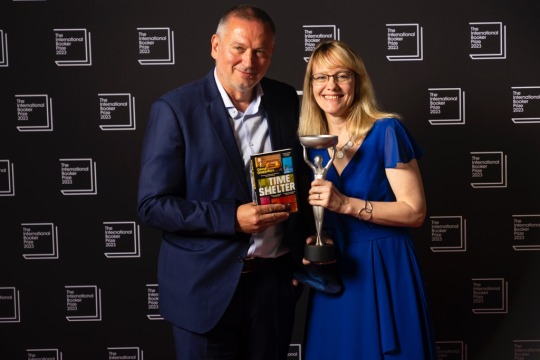
"Time Shelter" escrito pelo autor búlgaro Georgi Gospodinov e traduzido por Angela Rodel foi o vencedor da edição 2023 do International Booker Prize, que tem como objetivo incentivar a publicação e a leitura de mais ficção internacional, além de promover e reconhecer o trabalho vital dos tradutores.
2 notes
·
View notes
Text
finished boulder by eva baltasar today and am a bit conflicted. i really related to the disgust the pov character, a queer woman, felt towards all things pregnancy and childbirth related. it was so genuinely refreshing to read the way the author wrote never couched that disgust or ever shamed her for it. the despair i felt while reading as the noose of her situation gradually closed in with no way out was an incredibly unique experience. and then it flipped on its head to ‘i didn’t love my child until i held it and now i want nothing more’. i recognize that it’s a subversion of a heteronormative trope, where it’s the father who feels increasingly alienated from and confused by his changing partner throughout a pregnancy but then he holds the baby and finally Gets It. i didn’t want her to get it. i wanted her to get out, with that same utterly refreshing lack of condemnation
6 notes
·
View notes
Text


look what I got my hands on!
#I'll probably just gift this copy#tomb of sand#books#bookblr#international booker prize#geetanjali shree#reading#bookish#booksbooksbooks#bookshelf#tbr#reading list#academia aesthetic
9 notes
·
View notes
Text
WOAAHH GEETANJALI SHREE WON THE BOOKER PRIZE LETSS GOOO

#desi#desiblr#books#4th one for us woohoo#this book is written in hindi that tooo#international booker prize
2 notes
·
View notes
Text
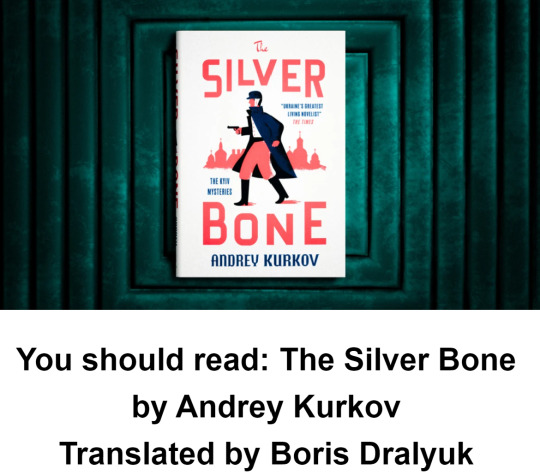
Kyiv, 1919. The Soviets control the city, but White armies menace them from the West. No man trusts his neighbour and any spark of resistance may ignite into open rebellion. When Samson Kolechko’s father is murdered, his last act is to save his son from a falling Cossack sabre. Deprived of his right ear instead of his head, Samson is left an orphan, with only his father’s collection of abacuses for company. Until, that is, his flat is requisitioned by two Red Army soldiers, whose secret plans Samson is somehow able to overhear with uncanny clarity. Eager to thwart them, he stumbles into a world of murder and intrigue that will either be the making of him – or finish what the Cossack started.
👀👀 hmm
Quiz: which book from the International Booker Prize 2024 longlist should you read?
0 notes
Text
1 note
·
View note
Text

Geetanjali Shree in, Tomb of Sand.
#prose#quotes#book quotes#books#books and libraries#bookblr#lit#booksbooksbooks#book rec#literature#indian literature#asian literature#geetanjali shree#tomb of sand#international booker prize#on daughters#on women#writing#words
16 notes
·
View notes
Text
Jenny Erpenbeck für International Booker Prize nominiert
Jenny Erpenbeck hat es mit ihrem Übersetzer Michael Hofmann auf die Shortlist des International Booker Prize geschafft. Die Berliner Autorin ist in der englischsprachigen Welt sehr erfolgreich, manche sehen in ihr bereits die kommende Nobelpreisträgerin.
Die Autorin Jenny Erpenbeck hat es mit ihrem englischen Übersetzer Michael Hofmann auf die Shortlist für den International Booker Prize geschafft. Die Berlinerin ist in der englischsprachigen Welt äußerst erfolgreich, manche sehen in ihr bereits eine kommende Nobelpreisträgerin. Mit dem renommierten Preis wird der beste Roman aus dem nicht englischsprachigen Ausland ausgezeichnet.
Continue…

View On WordPress
#Alfred Döblin#Annie McDermott#Barbara Mesquita#Christian Hansen#David Diop#David Grossman#Durs Grünbein#Ernst Jünger#featured#Franz Kafka#Geetanjali Shree#Georgi Gospodinov#Hang Kang#Hans Fallada#Herta Müller#Hwang Sok-yong#IA Genberg#International Booker Prize#Irmgard Keun#Itamar Vieira Junior#Jenny Erpenbeck#Jente Posthuma#Johnny Lorenz#Jokha Alharthi#Joseph Roth#Kira Joseffson#Lucas Rijneveld#Michael Hofmann#Olga Tokarczuk#Sarah Timmer Harvey
0 notes
Text
The International Booker Prize Shortlist 2024 Announced
Find out the six books shortlisted for the International Booker Prize award for 2024!
The six novels for the International Booker Prize shortlist for this year have been announced.
This year’s shortlist includes six books from six different countries and six different languages. They are from three different continents, highlighting human experiences from all over the world.
“Novels carry us to places where we might never set foot and connect us with new sensations and…
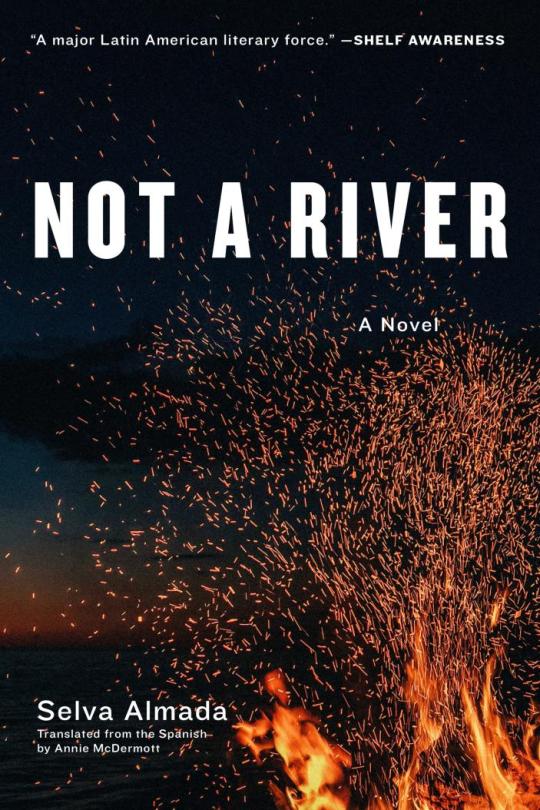
View On WordPress
#2024#Blog#blogging#book#book review#books#books to read#Fiction#International Booker Prize#news#novel#reading#shortlist#writing
0 notes